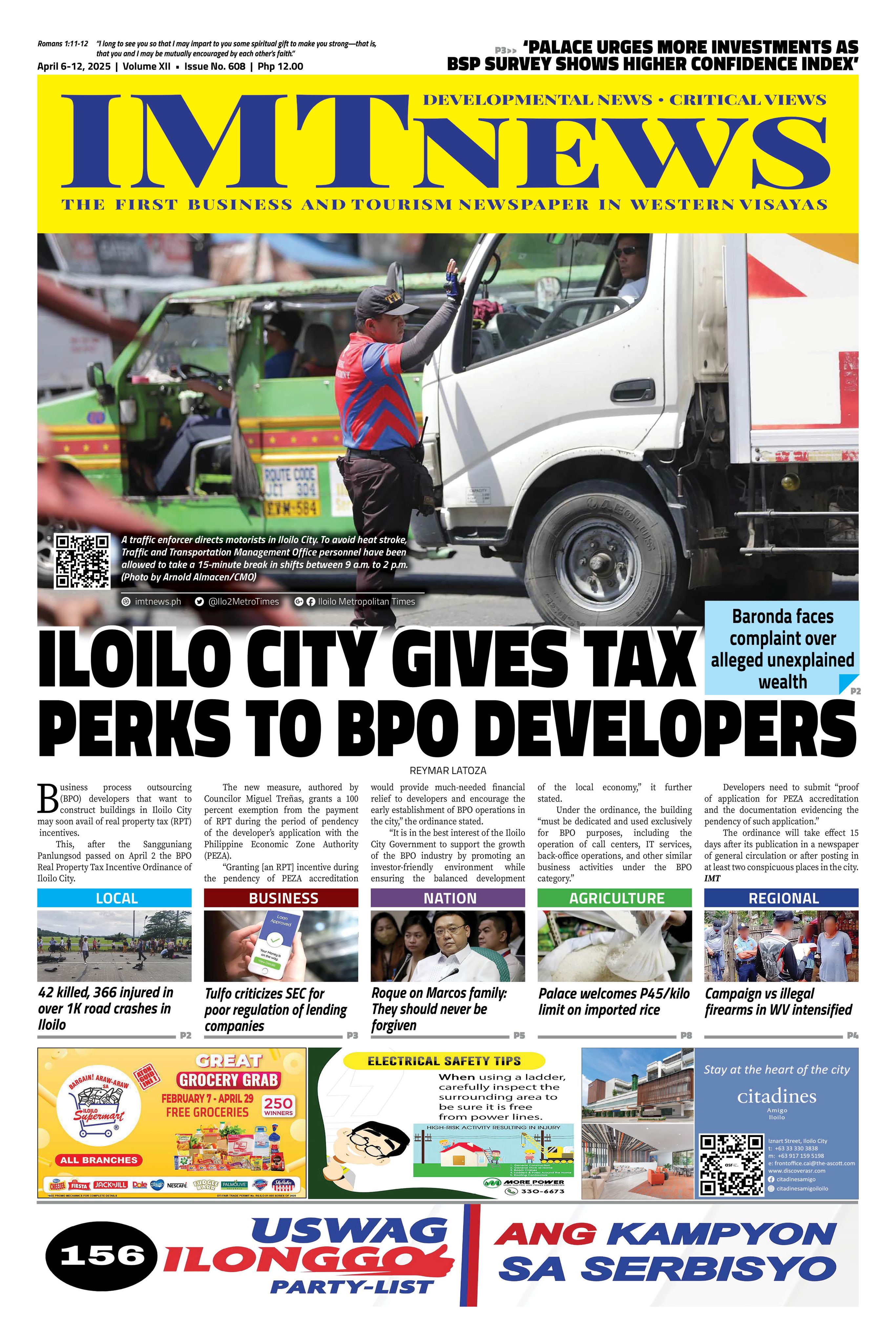In Iloilo, we often take pride in how warm and accommodating our people are. The Ilonggo smile, the soft-spoken tone, the instinct to extend bulig (help) even before it’s asked—these are deeply embedded in our cultural DNA. They form part of what many refer to as the Ilonggo way of caring, or amuma in a broader regional context.
But while these traits are commendable and powerful in shaping first impressions, we must recognize that service, especially in a growing economic and tourism hub like Iloilo, cannot rely on heart alone. A truly world-class Ilonggo service culture must go beyond amuma as sentiment—and evolve into amuma as system.
Service as a Strategic System
Service is not just about smiling more or saying “thank you” more often. It is not a mood—it is an engineered process. The most successful service-oriented economies in the world—Singapore, Japan, even parts of Vietnam—understand this well. What feels like seamless kindness is, underneath, a carefully architected experience.
To build an Ilonggo branded service culture, we must adopt the mindset that service is a discipline. It must be designed, not improvised. It must be trained, not assumed. And most importantly, it must be sustained by a system that understands the customer journey, anticipates pain points, and delivers consistent value every time. This is where design thinking becomes invaluable: we must empathize with customers, define their needs, ideate solutions, prototype experiences, and test for impact. Soft skills are the face—but systems are the backbone.
Grounded in Empathy, Guided by Process
The power of empathy is something Ilonggos already have in abundance. We feel for our customers, and we genuinely want to make things easier and better for them. But the challenge is to make empathy scalable and repeatable across different teams, sectors, and businesses.
Imagine a hotel where one staff member gives excellent service, but another is uninformed or indifferent. Or a government office where a frontline worker is patient, but the system behind them is disorganized. Inconsistent experiences break trust. That’s why empathy, when guided by systems thinking, becomes transformational. It leads to the creation of SOPs, feedback loops, service blueprints, and data-informed improvements that allow us to offer not just good service—but reliably great service.
A Competitive Advantage Rooted in Identity
Ilonggos are poised to redefine service culture in the Philippines—not by copying models from other cities, but by distilling what is best in us and elevating it through strategic systems. Our sense of dignity (dignidad), our love for harmony (pag-isa), and our respect for others (pagrespeto) can all inform the way we approach service.
When these values are integrated into customer training, service design, and performance metrics, they cease to be sentimental—they become strategic.
In the long term, a strong Ilonggo service culture can become our region’s most powerful differentiator, not just in tourism but in hospitality, BPOs, healthcare, retail, government services, and more. In fact, with the rise of AI and automation, it is our human-centered service—deeply local, deeply caring, and deeply consistent—that will set us apart.
Looking Ahead: Designing a Signature Ilonggo Experience
To build this vision, we need collaboration across sectors. LGUs must integrate service design into policy. Businesses must invest in training not just for product knowledge, but for emotional intelligence and systems thinking. Schools must shape a new generation of Ilonggo workers and entrepreneurs who understand that care is not the opposite of competence—it is a form of it.
Ultimately, this is the moment to go beyond amuma as an adjective, and elevate it into a structured philosophy of service. That is how we create a signature Ilonggo experience—authentic, elegant, and engineered for excellence.
Ken Lerona is a marketing and branding leader with over 20 years of experience. He conducts talks and workshops for private and government organizations and consults on innovation and reputational risk management. Connect with him on LinkedIn at www.linkedin.com/in/kenlerona.








